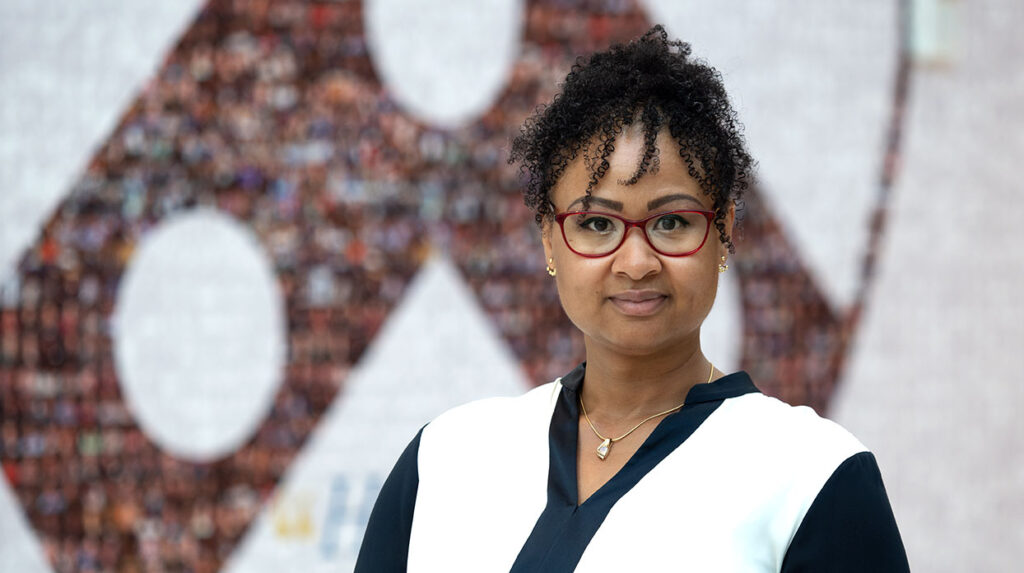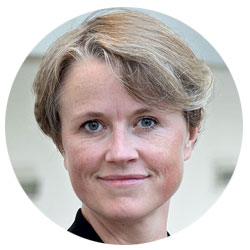
HIV is Not a Crime: The Case for Ending HIV Criminalization
Outdated Laws Target Black and Queer Lives in Over 30 States, Fueling a Deadly Disease
News

As Meghan Lane-Fall, MD, MSHP, assumes her new role as Executive Director of the University of Pennsylvania Implementation Science Center at LDI (PISCE@LDI) she is keenly mindful that the increased pace of innovation at virtually every level of health care delivery is exponentially increasing the need for implementation scientists in what was a relatively little-known field just a decade ago.
“Although the field of implementation science has been expanding steadily, the pandemic has brought it to a new inflection point,” said Lane-Fall, an LDI Senior Fellow and Perelman School of Medicine Associate Professor. “The turn-on-a-dime, seat-of-the-pants innovations required by the COVID-19 crisis have spotlighted the need for broad organizational changes across much of health care beyond those previously recognized. Looking forward, I think the future of implementation science is as exciting in its potential to improve health care as it is challenging in the incredible complexity of that task.”
Implementation science is a field that studies the clinical, administrative, logistical, behavioral, financial, and political mechanisms that foster or inhibit the acceptance and routine practice of new research discoveries in health care delivery. The ultimate goal of the discipline is to close the research-to-practice gap to eliminate ineffective methods, and more closely connect health care institutions and their patients to the latest scientific advances in care.
Only in the last ten years has implementation science been more widely recognized as a meaningful field of academic investigation, particularly in the wake of sweeping changes required by the Affordable Care Act, and the more dramatic health care delivery changes demanded by the current COVID-19 pandemic.
“We’re seeing unprecedented demands for new approaches to the organization of health care systems in ways that control costs, improve care quality, and ensure care equity,” Lane-Fall continued. “It’s now widely recognized that effectively achieving the execution of these changes requires orderly, evidence-based scientific strategies and methods. That’s one of the reasons the University of Pennsylvania’s implementation science educational programs have become so popular.” She noted that seats are routinely sold out for the annual Penn Implementation Science Institute which she has co-directed with PISCE@LDI Founding Director Rinad Beidas, PhD.
Associate Professor of Anesthesiology and Critical Care, Lane-Fall is co-founder of the Penn Implementation Science Institute and Director of Penn’s new Implementation Science Certificate program. Prior to her new appointment, she served as the Director of Acute Care Implementation Research at PISCE@LDI, which was launched in 2018 by Rinad Beidas, PhD.




To more effectively manage its expanding educational and research activities, Lane-Fall announced a reorganization of PISCE’s leadership structure.
Katharine Rendle, PhD, MPH, has been named PISCE Director of Cancer Implementation Research. An LDI Senior Fellow and Assistant Professor in both Family Medicine and Community Health, and Epidemiology at the Perelman School, Rendle is Director of the Implementation Science Innovation Program at the Penn Center for Cancer Care Innovation (PC3I).
Christopher Bonafide, MD, MSCE, has been named PISCE Director of Pediatric Implementation Research. An LDI Senior Fellow and Associate Professor of Pediatrics at the Perelman School, Bonafide is also a pediatric hospitalist at the Children’s Hospital of Philadelphia (CHOP).
Amanda Bettencourt, PhD, has been named PISCE Director of Acute Care Implementation Research. An LDI Senior Fellow and Assistant Professor of Family and Community Health at the Penn School of Nursing, Bettencourt is a pediatric clinical nurse specialist whose research is focused on implementation science. She is also the President-elect of the American Association of Critical Care Nurses (AACN).
Courtney Benjamin Wolk, PhD, has been named PISCE Director of Mental Health Implementation Research. An LDI Senior Fellow and Assistant Professor of Psychiatry, Benjamin Wolk is a licensed clinical psychologist whose research is focused on the development and evaluation of strategies to promote the uptake of evidence-based care into routine practice, with the ultimate goal of improving the effectiveness of mental health services for children and adults in non-specialty mental health settings.
To further broaden the expertise it brings to projects, Lane-Fall said PISCE will operate more closely in partnership with the Penn Centers for AIDS Research (CFAR), Health Incentives and Behavioral Economics (CHIBE), Healthcare Improvement and Patient Safety (CHIPS), Palliative and Advanced Illness Research (PAIR), and Clinical Epidemiology and Biostatistics (CCEB).
“Since it established its first Implementation Science Working Group at the Leonard Davis Institute of Health Economics in 2011, Penn has been a leader in tracking and helping to advance the growth of this critically important discipline,” Lane-Fall said. “We now have the opportunity to take on an even larger role by marshaling the University’s extraordinary cross-campus interdisciplinary research assets as governmental organizations like the National Institutes of Health (NIH) and the Agency for Healthcare Research and Quality (AHRQ), along with foundations like the American Heart Association and the Robert Wood Johnson Foundation, are recognizing and supporting the rapid expansion of implementation science research and its positive impact on clinical care and evidence-based policy.”


Outdated Laws Target Black and Queer Lives in Over 30 States, Fueling a Deadly Disease

Selected for Current and Future Research in the Science of Amputee Care

Penn LDI Seminar Details How Administrative Barriers, Subsidy Rollbacks, and Work Requirements Will Block Life-Saving Care

Top Experts Warn of Devastating Impact on Community Safety Efforts

A Gathering of a Health Services Research Community Currently Under Siege

1,000+ Detail the Latest Health Services Research Findings and Insights